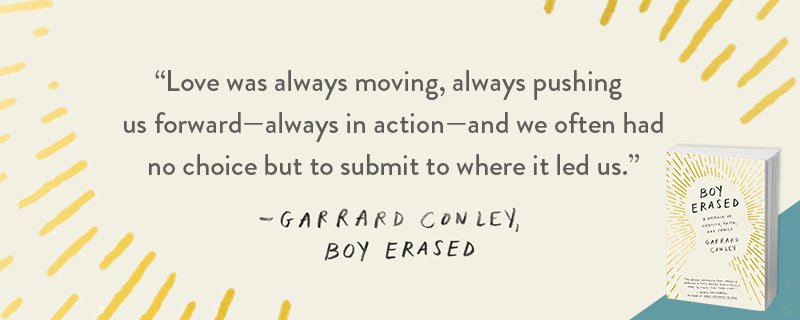Author Garrard Conley kicked off 2018’s Barbara Jordan Week at the LBJ School by coming to speak at its inaugural event. Conley’s new book, Boy Erased, is an autobiographical account of his experience with gay conversion therapy and his complicated relationship with his parents. Conley discussed the psychological manipulation the conversion “counselors” used, the agony his mother hid as she took him to and from the camp where he was “treated,” and the intellectual development that provided the foundation for his future freedom. He also reflected on the state of conversion therapy today, and shared lessons he learned by having tough conversations in deeply religious communities, including the community where he grew up. “None of these relationships—with my parents, the counselors, Smid [a prominent figure in the conversion therapy movement]—is easy,” he said, “but what I hope is that we can start to see this issue and each other in a more realistic light.”
Gay conversion therapy is defined by the American Psychological Association as “counseling and psychotherapy to attempt to eliminate individuals’ sexual desires for members of their own sex.” It is important to note the phrase “attempt to eliminate”—there is no empirical evidence to suggest that such practices are successful. Gay conversion therapy was initially developed and promoted by psychologists in the 1950s and 60s, at which time homosexuality was still included in the Diagnostic and Statistical Manual of Mental Disorders, or DSM. More recently, gay conversion therapy has seen a revival driven by evangelical leaders in religious communities. As Conley put it, “You don’t have to be ‘in conversion therapy’ to be in conversion therapy. Rather than going to a psychiatrist’s office, you might have a conversation with your pastor after a service.” Faith-based conversion efforts like this typically target adolescents—according to the Williams Institute at the UCLA School of Law, 57,000 youth currently between the ages of 13 and 17 will receive conversion therapy from a religious advisor before they reach adulthood. This figure is doubly alarming because lesbian, gay and bisexual children who are strongly rejected by their families are more than 8 times more likely to attempt suicide than their peers.
The religious nature of this recent iteration of conversion therapy has made the American South fertile ground for its dissemination over the last several decades. Here in Texas, as recently as last year, Governor Greg Abbott signed into law House Bill 3859—a bill which will, among other things, allow publicly-funded child welfare agencies to send LGBTQ youth in their care to conversion therapy. Describing his experiences with conversion therapy, Conley said that the program had a “Sunday School atmosphere that created a feeling of safety,” which belied some of the more devious practices, such as the removal and destruction of personal property, guided journaling to discover the “hateful roots” of the “homosexual urges,” and the sublimation of individual identity. “That’s in line with what a cult does,” Conley remarked. “Anything personal must be destroyed so you can fit in with the group.”
Conley’s ability to resist these efforts, and ultimately leave the program, stemmed from his exposure to multidimensional narratives and diverse intellectual perspectives during his first year of college. He said he had “[an] awareness of the nuance of stories” which made it difficult for their psychological coercion to take root. “I wasn’t fitting into their very simple narrative, which functioned purely on stereotypes. I knew that any organization that was forcing me to hate my father wasn’t going to ‘cure’ me.”
Nine states and the District of Columbia have recognized the harmful effects of conversion therapy by banning health care professionals from practicing such techniques on children. Unsurprisingly, Texas is not one of them. Indeed, the Texas Republican Party explicitly endorsed conversion therapy in their 2014 platform, though some Democratic state lawmakers have attempted to push back. I asked Conley how people who are concerned about conversion therapy can move the conversation forward in places like Texas. “The most promising way to move the needle is by setting aside attempts to push for the broad acceptance of homosexuality,” which he acknowledged may remain set in stone for many evangelicals. He would encourage people to focus on the clear and measurable harm that conversion therapy does, the evidence of which should be compelling to all. “The South is proud of itself,” Conley said. “[Maybe we] can convince people they’re more ethical by acknowledging the harm, regardless of the politics. This isn’t a sexy message for activism, but I think it’s important.”

